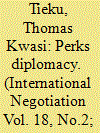| Srl | Item |
| 1 |
ID:
116499


|
|
|
|
|
| Publication |
2012.
|
| Summary/Abstract |
This paper attempts to examine the impact of government intervention on executive compensation contracts by employing the data of listed companies in the Chinese equity market. The results show that redundancy burden caused by government intervention significantly reduces the compensation-performance sensitivity of executives in state-owned enterprises (SOEs), increases the level of compensation stickiness and leads to more executive perks. However, there is no evidence to support this conclusion in non-SOEs. Our results indicate that government has great responsibility for redundancy in SOEs and has a significant impact on the design of executive compensation contracts, but has limited impact on that of non-SOEs. Therefore, the impact of redundancy burden on executive compensation contracts is different between SOEs and non-SOEs. Our findings have important implications for the relationship between property rights and corporate performance, the formation mechanism of redundancy, and the impact of redundancy burden on executive compensation contracts.
|
|
|
|
|
|
|
|
|
|
|
|
|
|
|
|
| 2 |
ID:
123173


|
|
|
|
|
| Publication |
2013.
|
| Summary/Abstract |
Abstract This article examines impacts of luxurious perks, such as paid daily allowances on peace talks. It draws on the case of the Burundian peace processes held in Arusha, Tanzania and the Seventh Round of the Inter-Sudanese Peace Talks held in Abuja, Nigeria to show that perks can unintentionally prolong peace talks. Perks bestowed on delegates to the talks seduced the conflicting parties away from whatever interest they might have had in actually reaching an agreement. For some, living free of charge in five-star hotels and receiving the equivalent of five months' pay in one week of per diems made continued talks more attractive than achieving peace. Many of the feuding parties found the perks of greater value for their effort - or rather, lack thereof - and they shared an incentive to keep the talks going.
|
|
|
|
|
|
|
|
|
|
|
|
|
|
|
|